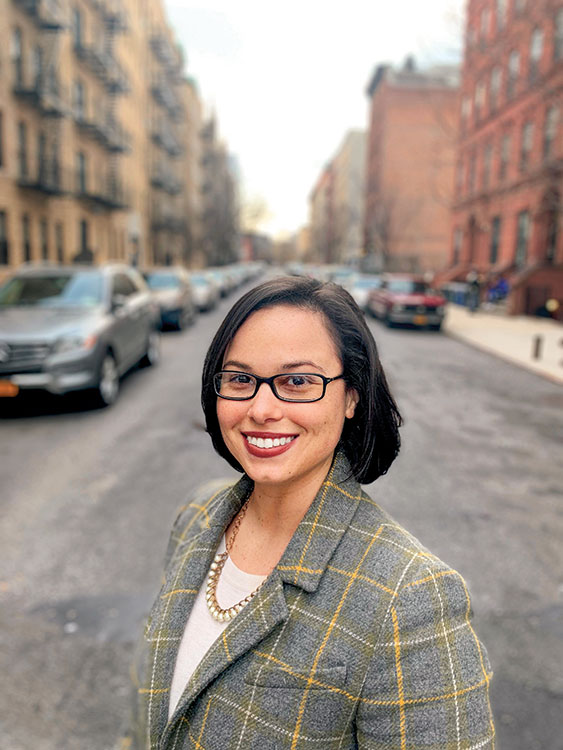
Though Carly Weil ’10 handles business from her office at the World Financial Center in Manhattan, as chief of staff for American Express’ Global Services Group (which covers the company’s servicing and credit operations as well as critical business services), her work spans the map. That thread started at Colgate, with a Russian film class that spawned a Russian studies major, and participation in the Model United Nations representing various countries and world leaders. Learn more about how Weil works with colleagues in other continents (and in NYC):
Lessons in Leadership
As chief of staff, Weil serves as the right-hand woman to the president of her department. She spends her days steadying her boss’ workflow, helping to lead the organization. No two days are the same, Weil stresses: “I can be involved in everything from writing her talking points for a large presentation, to putting together a financial plan for next year, to running a strategy session with her and her leadership team.” About half of American Express’ executive-level leadership is female, and Weil says it sometimes feels like she’s getting a second MBA (her first is from Columbia Business School) with all that she learns on the job.
Caring for Employees
Handling the needs of a workforce is a monumental task — especially during a global pandemic. Through late-night phone calls and quick thinking, Weil helped coordinate the remote work transition for call center employees as far away as Mexico and India. “The thing that got me through [was] the end goal in sight and the bigger picture: I was helping people continue to earn their paychecks and be home safe with their families. When you think about it that way, you’re like, ‘All right. I can deal with working late.’ We also wanted to make sure that we were there for our customers too.”
Using Colgate Skills
Weil was a member of Colgate’s Model United Nations — an activity she says strengthened her debate skills, which she taps into often in her current role. “[Model UN] teaches you to think about how other people approach problems,” she says. “You have to put your entire brain in a given country or given leaders’ position and argue that effectively.”
